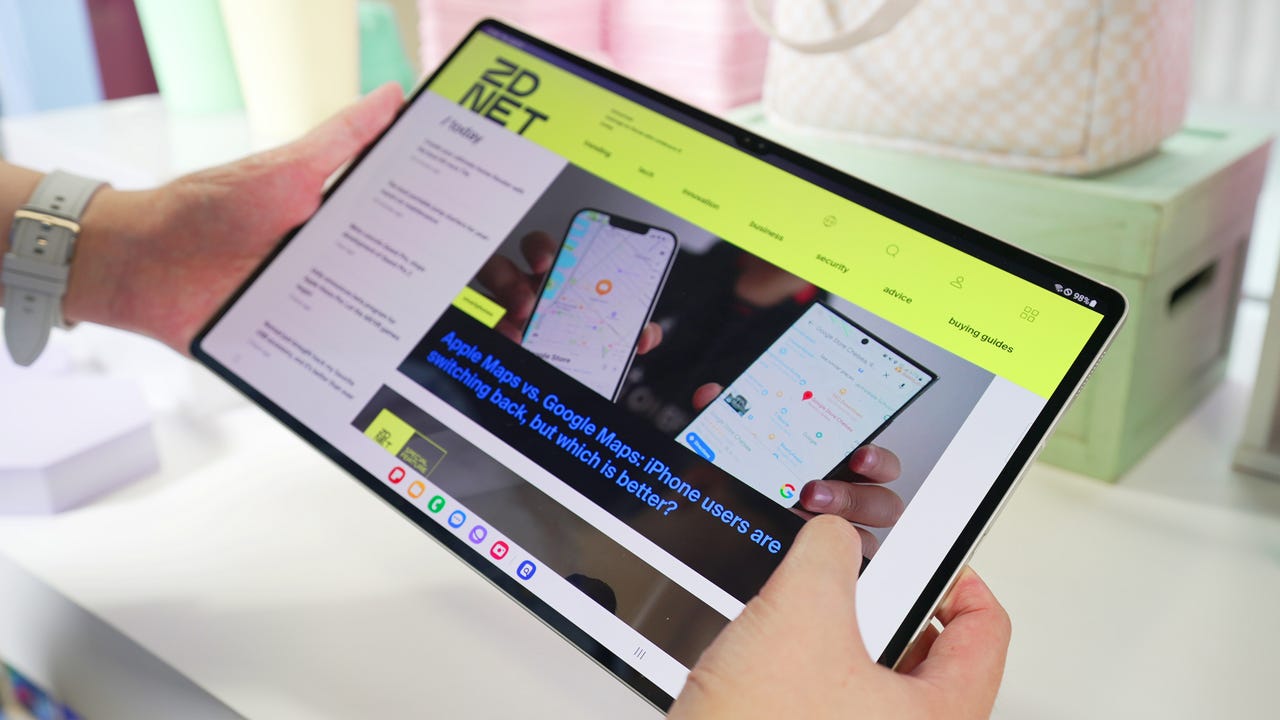'ZDNET Recommends': What exactly does it mean?
ZDNET's recommendations are based on many hours of testing, research, and comparison shopping. We gather data from the best available sources, including vendor and retailer listings as well as other relevant and independent reviews sites. And we pore over customer reviews to find out what matters to real people who already own and use the products and services we’re assessing.
When you click through from our site to a retailer and buy a product or service, we may earn affiliate commissions. This helps support our work, but does not affect what we cover or how, and it does not affect the price you pay. Neither ZDNET nor the author are compensated for these independent reviews. Indeed, we follow strict guidelines that ensure our editorial content is never influenced by advertisers.
ZDNET's editorial team writes on behalf of you, our reader. Our goal is to deliver the most accurate information and the most knowledgeable advice possible in order to help you make smarter buying decisions on tech gear and a wide array of products and services. Our editors thoroughly review and fact-check every article to ensure that our content meets the highest standards. If we have made an error or published misleading information, we will correct or clarify the article. If you see inaccuracies in our content, please report the mistake via this form.
Samsung's Galaxy Tab S9 has a battery feature that the iPad doesn't, and I'm jealous

It's interesting to watch the two giants of the mobile tech world -- Apple and Samsung -- battle it out to create great products. It's a win-win situation for consumers.
While there are lots of similarities between the two company's smartphones and tablets, there are also some key differences. One big difference I noticed watching the Samsung Unpacked event is the approaches the companies take to tablet thermal management.
Also: Every product announced at Samsung Unpacked
You can't change the laws of physics. The more performance you want to get out of a device, the more heat there is to deal with.
While end users only really care about cooling when their device gets uncomfortably warm -- sometimes alarmingly so -- to the touch, effective thermal management can also improve the performance and longevity of a device.
Heat is a silent killer of devices.
Not only does it cause premature battery wear, but the constant heating and cooling cycles can cause solder joints responsible for holding components onto the mainboard to fracture. Also, when a device gets hot, one of the strategies used to cool it down is to throttle back on performance.
Also: Galaxy Tab S9 Ultra vs iPad Pro: Which flagship tablet should you buy?
And effective cooling can have a huge difference in performance. The M2 chip that Apple users in the new iPad Pro is the same chip found in the MacBook Pro, but it runs some 3% slower, a difference that comes down mostly to cooling.
Samsung is taking no chances when it comes to cooling with its new Tab S9, and has built a number of mechanisms into the tablet. Incorporated into the structure are layers of TIM -- Thermal Interface Materials -- that are used to carry the heat both up toward the display and down to the back of the case for dissipation.
Samsung Tab S9 thermal management.
But there's more.
The Tab S9 is the first Galaxy Tab series tablet to feature vapor chamber technology to more effectively move the heat from critical components, and safely dissipate it to the outside environment.
Tab S9 is the first Galaxy Tab series tablet to feature vapor chamber technology.
I push my iPad Pro quite hard to run apps such as DaVinci Resolve, and while for the most part, it copes pretty well with these demands, there are times when things start to get hot and it could benefit from better cooling, allowing it to unlock even more power from that M2 chip.
